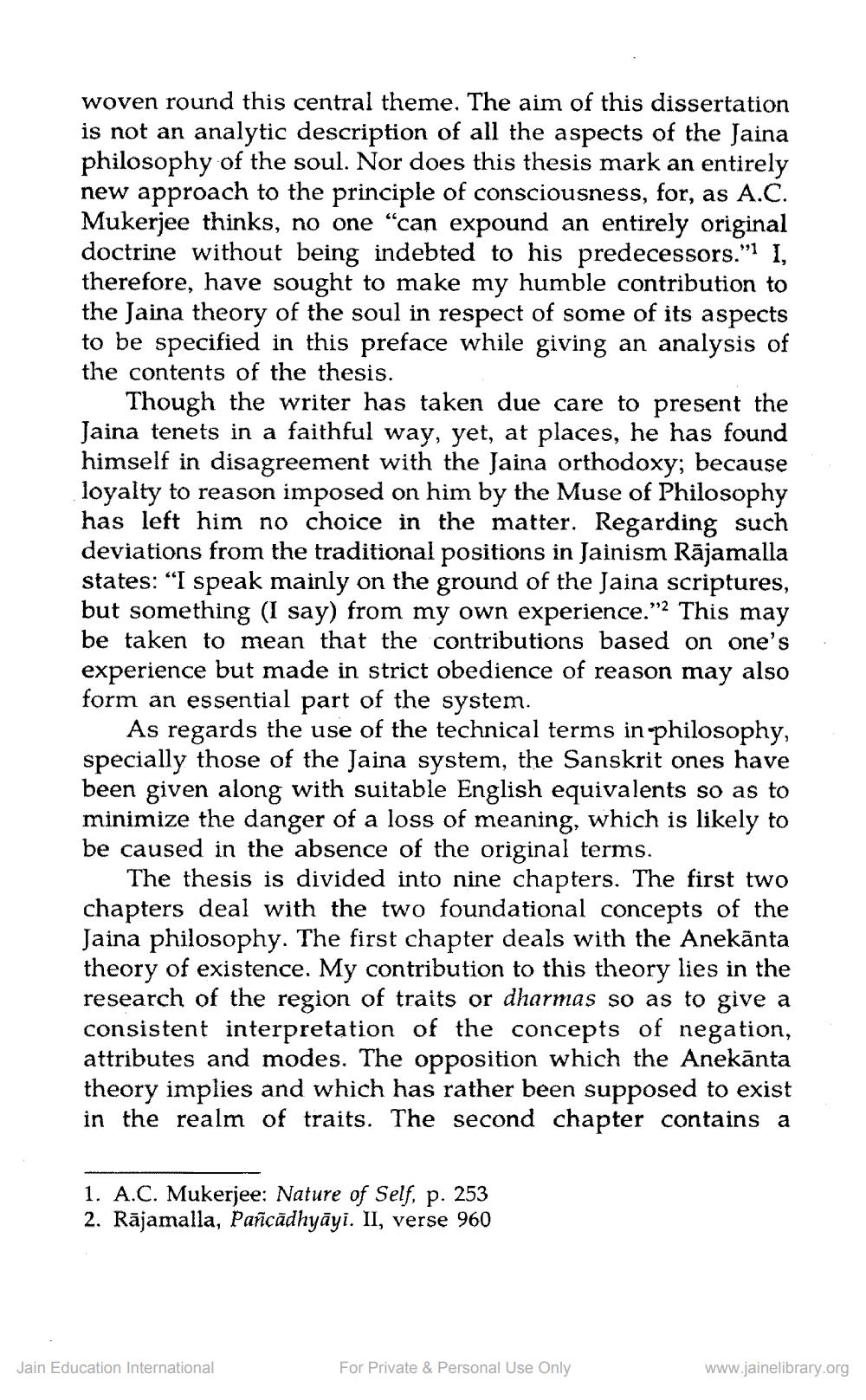________________
woven round this central theme. The aim of this dissertation is not an analytic description of all the aspects of the Jaina philosophy of the soul. Nor does this thesis mark an entirely new approach to the principle of consciousness, for, as A.C. Mukerjee thinks, no one "can expound an entirely original doctrine without being indebted to his predecessors."1 I, therefore, have sought to make my humble contribution to the Jaina theory of the soul in respect of some of its aspects to be specified in this preface while giving an analysis of the contents of the thesis.
Though the writer has taken due care to present the Jaina tenets in a faithful way, yet, at places, he has found himself in disagreement with the Jaina orthodoxy; because loyalty to reason imposed on him by the Muse of Philosophy has left him no choice in the matter. Regarding such deviations from the traditional positions in Jainism Rājamalla states: "I speak mainly on the ground of the Jaina scriptures, but something (I say) from my own experience." This may be taken to mean that the contributions based on one's experience but made in strict obedience of reason may also form an essential part of the system.
As regards the use of the technical terms in philosophy, specially those of the Jaina system, the Sanskrit ones have been given along with suitable English equivalents so as to minimize the danger of a loss of meaning, which is likely to be caused in the absence of the original terms.
The thesis is divided into nine chapters. The first two chapters deal with the two foundational concepts of the Jaina philosophy. The first chapter deals with the Anekanta theory of existence. My contribution to this theory lies in the research of the region of traits or dharmas so as to give a consistent interpretation of the concepts of negation, attributes and modes. The opposition which the Anekānta theory implies and which has rather been supposed to exist in the realm of traits. The second chapter contains a
1. A.C. Mukerjee: Nature of Self, p. 253
2. Rājamalla, Pañcādhyāyi. II, verse 960
Jain Education International
For Private & Personal Use Only
www.jainelibrary.org




